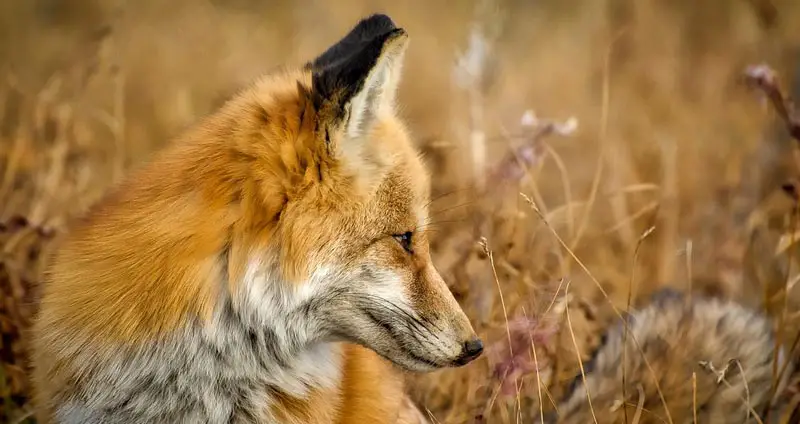Foxes are commonly seen as very clever, mischievous, and adorable creatures — all correct observations. Despite their small size, foxes are surprisingly able to fend for themselves and thrive in many different environments.
While it’s common to see foxes hunting a variety of other animals, it isn’t common to see other animals hunting foxes.
So, do foxes have any predators, or are they able to thrive around the world without the fear of being eaten?
Table of Contents
What Eats Foxes?
Not a lot of animals actively hunt foxes for food, but they do have predators. The main predators of foxes include bears, wolves, coyotes, badgers, birds of prey, humans, and other foxes.
It should be noted that most, if not all of these fox predators don’t actively hunt out foxes for food. If foxes are killed/eaten, it’s likely because they’re competing for food or territory.
Let’s take a closer look at the main predators of foxes.
1. Humans
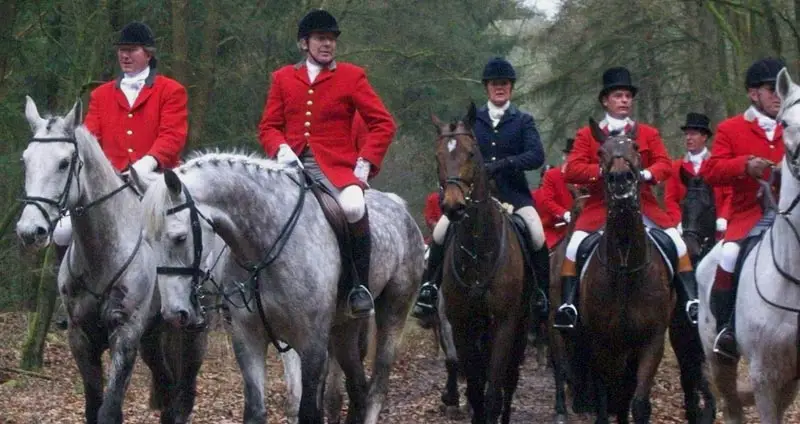
Humans have had both the greatest positive and negative impacts on foxes over the years by hunting them nearly to extinction then supporting their recovery.
Fox hunting, as a popular activity, has been around for hundreds of years. Proponents of it tout that it’s an important rural cultural activity and is useful for conservation and pest control. The foxes’ pelts are also a benefit.
Fortunately, over the years, fox hunting has become less popular and criminalized in some places, although it does continue in Northern Ireland, Australia, Canada, France, Ireland and the United States.
Presently, foxes have been able to incorporate surprisingly well into populated areas and their populations have seen resurgences.
Humans never hunted foxes for food, but our impact on them can’t be overlooked.
2. Bears
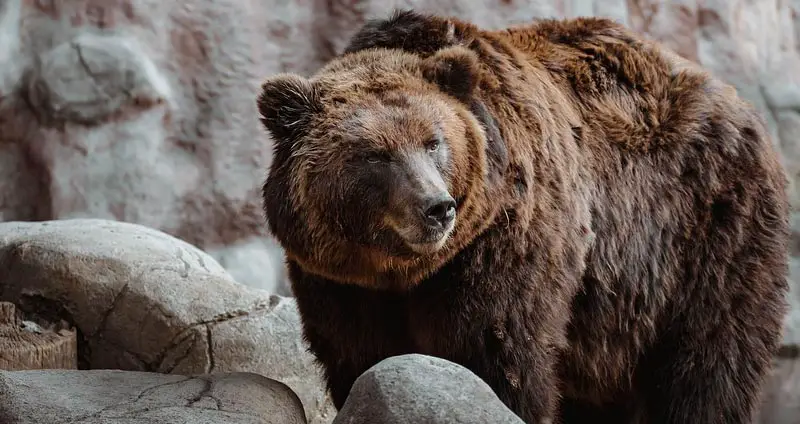
Bears are absolutely massive, weighing up to 1000 pounds in some cases. Therefore, if they can get close enough to a fox, they’ll easily be able to overpower it and eat it.
Fortunately, just the presence of a bear is able to scare off foxes and keep them safe for the most part.
However, if a fox gets too close to a bear’s cub or their food, there’s no doubt that a bear would kill and eat a fox.
3. Wolves
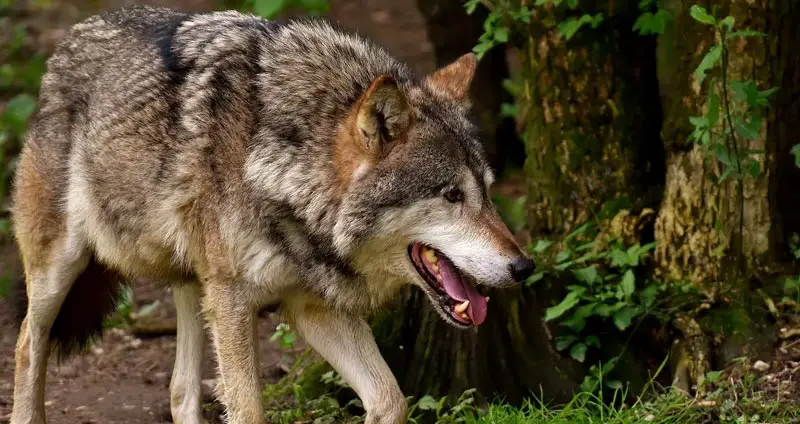
Wolves are apex predators and have almost no threats in the wild. Frankly speaking, they’re some of the most dangerous predators out there.
Wolves primarily hunt in packs and aim to take down very large prey. With foxes only weighing between 7 and 15 pounds, they’re too small to be a wolf’s primary target.
However, if a wolf is hungry, or if a fox infringes on a wolf pack’s territory, a wolf will gladly chase down and eat a fox.
4. Lynxes

Lynxes and foxes have a lot in common in terms of the food that they hunt and the areas that they hunt in. Therefore, they come in contact with each other at times.
These large cats are able to hunt down foxes fairly easily, but it isn’t a very common occurrence.
However, they have been known to kill foxes if their normal food is scarce.
5. Coyotes/Jackals
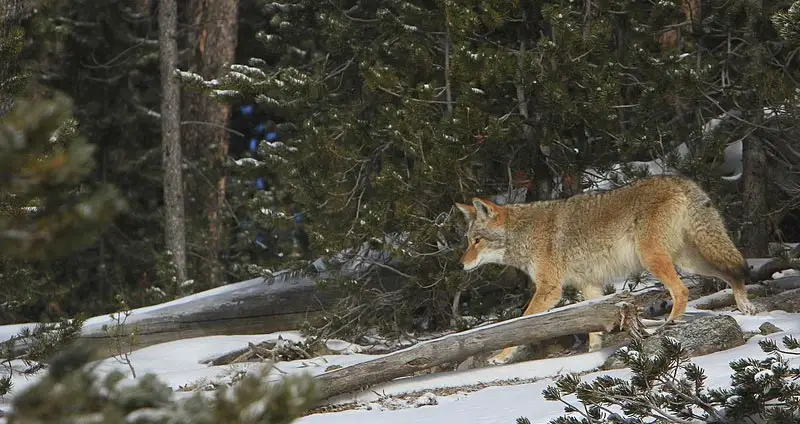
Like lynxes, coyotes and jackals hunt the same food in the same areas as foxes, so they also cross paths occasionally.
Once again, these animals don’t actively hunt down foxes, but they do commonly compete for the same prey. This can lead to fights and kills.
As coyotes, jackals, and other wild dogs are carnivores, they wouldn’t hesitate to eat a fox that they just killed.
6. Badgers
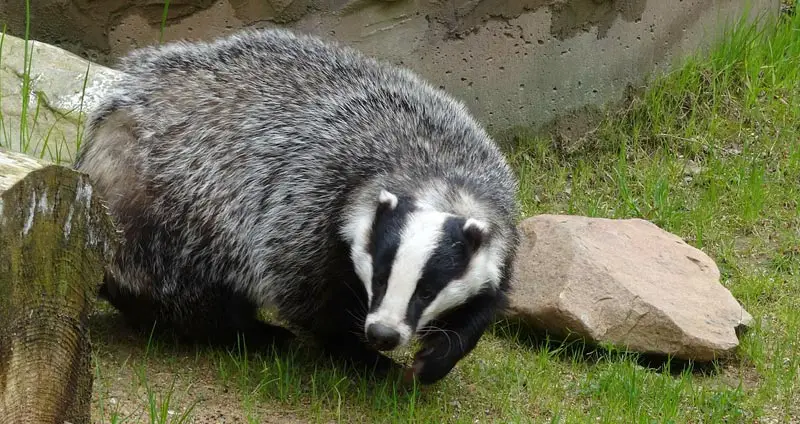
Badgers are fierce, aggressive (primarily) carnivores that will eat almost anything. For the most part, they’re able to live with foxes peacefully. Foxes know to stay away from these small but aggressive animals.
However, if they’re feeling threatened in any way, a badger would be able to take down a fox.
7. Wolverines

Wolverines may not be very large, but they don’t act that way. They’re closely related to bears and won’t hesitate to take on an animal that’s much larger than them.
While foxes aren’t their primary target, they will likely actively hunt one down if they happen to see one.
They’re not very fast, though, so they don’t pose too much of a threat.
8. Hawks/Eagles/Owls
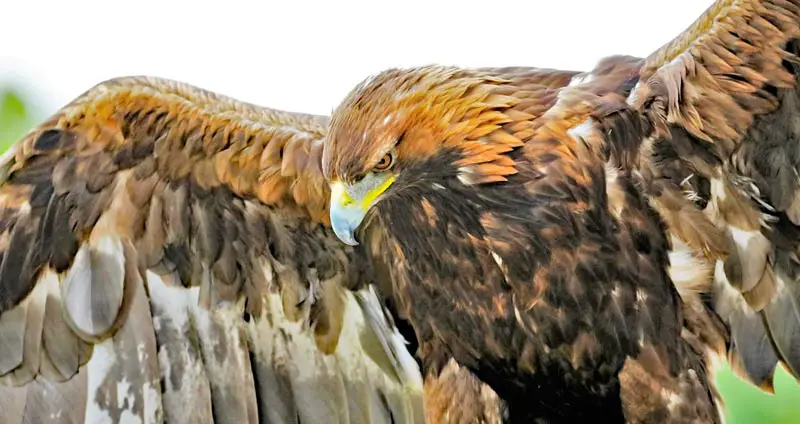
A large variety of different birds actively hunt down and eat foxes — especially babies.
Eagles and red-tailed hawks are large and stealthy enough that they can swoop down and grab an adult fox, carrying them away to eat.
Smaller birds may not be able to take on an adult fox, but they do actively seek out baby foxes to grab.
Additionally, several species of large owls are great at hunting down foxes. For example, the Great Horned Owl has about a 5 foot wingspan and would, without hesitation, snatch up a fox in the open.
9. Foxes

Believe it or not, foxes are actually some of the most prominent “predators” of other foxes. This largely comes down to the concept of survival of the fittest.
Starting from a very young age, foxes tend to be aggressive towards their siblings in order to establish dominance and weed out the week. Lots of sibling rivalry.
This rivalry is so great, in fact, that around 20% of all fox cubs will die due to this aggression while they’re still underground in their den.
As if that wasn’t bad enough, these killed cubs are then eaten by their siblings. So, foxes not only kill foxes, but they eat them, too!
How Do Foxes Defend Themselves?
While foxes are quite small and are solitary hunters, you would expect them to have a lot more predators that threaten their lives. Surprisingly, they’re not very threatened in the wild!
What exactly helps foxes survive in the wild, then?
Several factors give them this superiority, actually. The two most prominent factors are:
- Cautious living – While foxes are solitary hunters, they don’t go out care-free. Instead, they’re very cautious animals with acute senses that allow them to stay vigilant at all times. They dig their dens close to water sources and don’t wander too far from it during the day. Foxes are able to fend for themselves, but they also know that they’re small and need to be cautious while hunting.
- Impressive agility – Foxes are extremely agile and can simply run away from most of their predators. Some species can run over 45 mph! This speed, combined with their small size, allows them to outrun and out-maneuver most pursuing predators.

